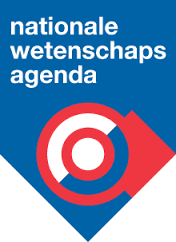News
CCHR submits questions to the Nationale Wetenschapsagenda
 The Dutch Science Agenda will contain the themes that science will focus on in the coming years. The science agenda consolidates the strengths of different parties to give a boost to the collaboration between scientists, industry and civil society organisations.
The Dutch Science Agenda will contain the themes that science will focus on in the coming years. The science agenda consolidates the strengths of different parties to give a boost to the collaboration between scientists, industry and civil society organisations.
Strengthening the international top position
Dutch science belongs to the international top. To further strengthen thistop position strategic choices need to be made and parties will have to work together more. The Dutch government therefore wants to deploy resources and energy in a more targeted manner with greater consideration for scientific strengths, societal challenges and economic opportunities.
Parties involved
The government therefore commissioned the so-called knowledge coalition to develop a Dutch Science Agenda. The members of the knowledge coalition are the universities (Association of Universities in the Netherlands – VSNU), the universities of applied sciences (Netherlands Association of Universities of Applied Sciences – VH), the university medical centres (Federation of University Medical Centres – NFU), the Royal Netherlands Academy of Arts and Sciences (KNAW), the Netherlands Organisation for Scientific Research (NWO), the Confederation of Netherlands Industry and Employers (VNO-NCW), the Royal Association MKB-Nederland and the institutes for applied research (TNO/TO2). The responsible and involved members of government are the Minister for Education, Culture and Science (Jet Bussemaker) the Minister for Economic Affairs (Henk Kamp) and the State Secretary for Education, Culture and Science (Sander Dekker).
Questions to science
The agenda will consist of a small number of themes, subdivided into highly promising scientific research areas. A large number of questions to science lie at the basis of these research areas. The questions can be of importance for science itself, for the solution of societal challenges or for the utilisation of economic opportunities.
The College van Bestuur of Utrecht University will support three questions with the highest level of aggregation for every strategic theme and research focus area. Therefore CCHR will submit a cluster of questions to the agenda related to the concept of citizenship in the light of processes of inclusion and exclusion in cooperation with societal partners like Oxfam/Novib, FOAM, Casco, BAK, CM, ATRIA. We trust that most of the CCHR researchers will be represented by our suggestions to NWA.
We are still working on the formulation of the questions, but below you will find two examples (in Dutch) that we are working on:
1. In hoeverre mag een samenleving de culturele en sociale diversiteit van haar burgers begrenzen?
Heeft iedereen in Nederland recht op bed, bad en brood, ongeacht juridische status? Helpen vrouwenquota op de arbeidsmarkt of gaan ze emancipatie juist tegen? Zijn hoofddoekjes een teken van diversiteit of juist een gevaar voor een tolerante samenleving? Nederland worstelt met de spanning tussen het gelijk behandelen en de feitelijke diversiteit van burgers. Hoe die spanning tussen gelijkheid en diversiteit van burgers kan en moet worden vormgegeven is een belangrijke vraag voor een open en democratische samenleving.
In onze democratie gaan we ervan uit dat de meerderheid de belangen en rechten van minderheden respecteert. De gelijkheid die een democratie nastreeft bestaat dus voor een groot deel uit het tolereren van verschil. Toch wil iedere samenleving ook sociale cohesie en formuleert normen om dit te bewerkstelligen. Tot welke vormen van in- en uitsluiting leidt dit? Oftewel, hoeveel verschil kan een samenleving aan?
Dit onderzoek wordt uitgevoerd door een coalitie van Geesteswetenschappers, Juristen, Antropologen en een consortium van maatschappelijke partners (Oxfam/Novib, Amnesty International, Castrum Peregrini, ATRIA, Mira Media)
2. Hoe kunnen we de ervaringen van burgers inzetten bij het ontwerp van een inclusieve en solidaire samenleving?
Om te weten welke factoren sociale gelijkheid bevorderen is het nodig om perspectieven op in- en uitsluiting van nieuwkomers (outcasts zowel als sociale stijgers) te onderzoeken en aandacht te besteden aan de kaders waarbinnen zij positieve en negatieve ervaringen articuleren, verbeelden en delen. Analyse van de wisselwerking tussen verwoording (interviews, fictie, non fictie, journalistiek, egodocumenten, sociale media, memoires) en visualisering (fotografie, film, artistieke en social media, instagram, youtube) van ervaringen en van de manier waarop die gedeeld en verspreid worden, kan beter zicht op processen van tweedeling en uitsluiting opleveren.
Dit onderzoek omvat dataverzameling en analyse van:
- zowel ‘succesverhalen’ (de geëmancipeerde vrouw, de immigrant die het maakt als kosmopoliet, de transgender die zich geaccepteerd voelt) als de haperingen in het systeem ( de ontmoedigde remigrant, de carrièrevrouw die aan mantelzorg ten onder gaat, mensen die stranden in de tweedeling der seksen)
- zowel contemporaine als historische tijdvakken (ruimere visie, profiteren van historische kennis)
- zowel gelijkheid binnen een staat (juridische gelijkheid, economische zelfstandigheid) als de vorming van informele gemeenschappen (rond bv muziek, levensstijl, seksualiteit, nationaliteit, religie)
- de wijze waarop ervaringen worden gemedieerd.
Maatschappelijke partners: FOAM, Oxfam/Novib, ATRIA, Mira Media, Castrum Peregrini, Centraal Museum Utrecht, BAK, CASCO
See here for more information on the process of submission at the NWA.

